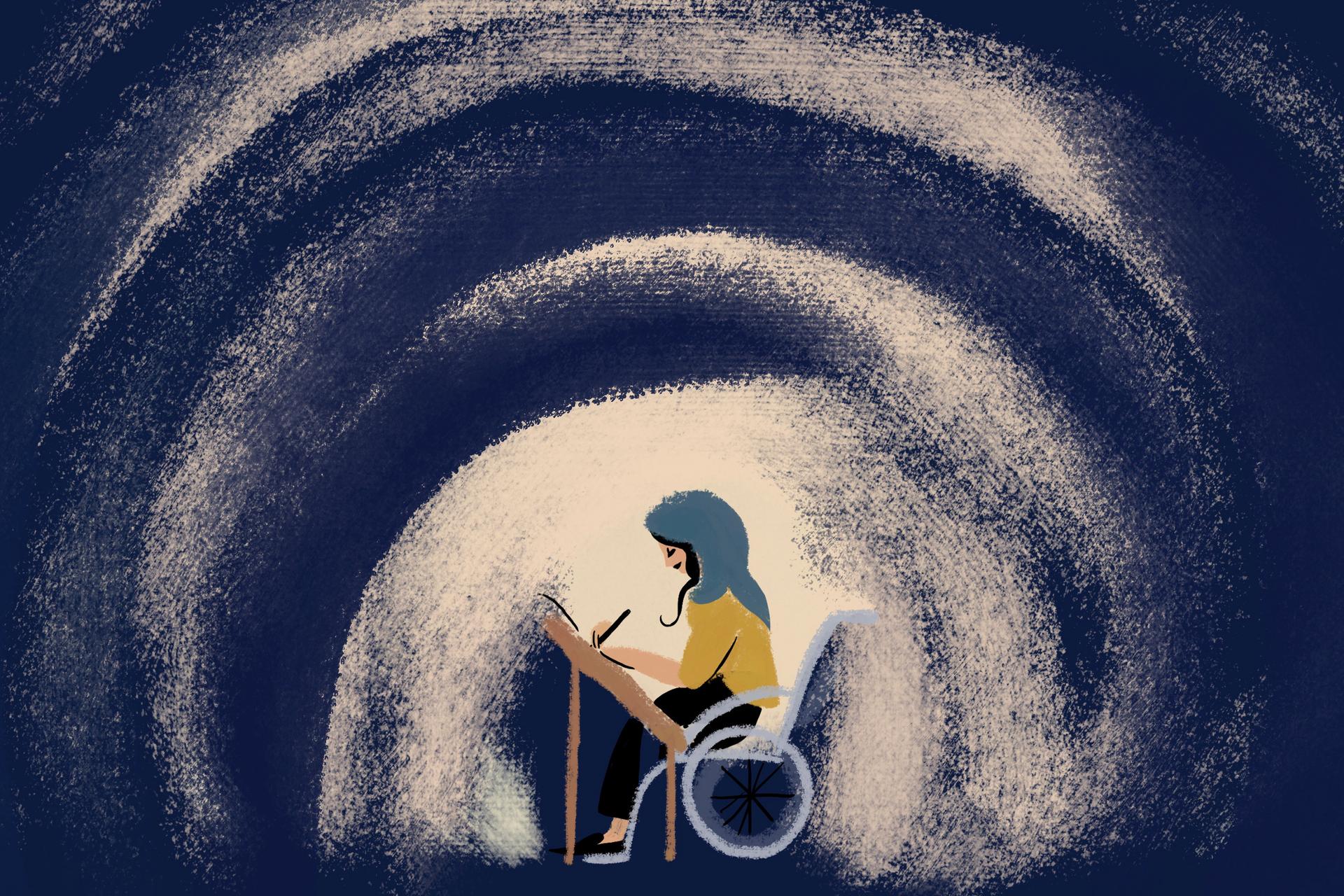by MARYAM MAHJOBA & ASAD NARIMAN

When the Taliban captured my city, thousands fled and the rest were severely repressed. But I’ve stayed – and survived
I ask my sister how many years it’s been since the Taliban came. She says four years ago this summer. I say five. She insists on four and, with a laugh, tells me to count the months and then say how much time has passed. I look at the political map of Afghanistan before me, it has become a part of the wall. Sometimes I even forget that I’m staring at it. Tall mountains, blue skies bathed in sunshine and endless pain: that is my homeland.
I wish my arms were as wide as the sky so that I can hold my country and all its suffering in my embrace. Outside my room, doves have begun their afternoon flight. I head out onto the patio to watch them and wonder why I feel as if more time has passed since Kabul fell to the Taliban than actually has. Is it because every day since August 2021 has felt like a year? Or seemed as if it would never end? But even before then, the government was fighting a war with the Taliban that claimed lives every day. The wounds of my homeland are too many to number or to point out which ones have impacted me. They’re like live wires. Whichever one I touch shakes me violently.
I’m 29 now, and I should have earned my master’s degree, but it remains a distant hope. I listen to the news and, when I get nauseous from the political games, escape into my novels: within their pages I find shelter from the bitterness of life. To keep a small light burning against the swallowing darkness, I also write, sometimes under a pen name and sometimes under my own.
I hold the hand of the writer within me tightly because I believe that more than any politician, it is this writer who will be of more use to my homeland.
So this is my story. This is how I remember the fall of Afghanistan.
It is 14 August 2021. I’m wearing black pants, a burgundy blouse with black stripes, and a thin crimson headscarf with my hair sticking out. I’m waiting for the elevator in my wheelchair and smiling at my reflection in the polished door frame. All around me, crowds of men and women are walking in great haste. I don’t remember ever seeing the campus so busy in my four years of studying at this university. Last night, one of the girls from the WhatsApp group of women activists I belong to messaged: ‘I have heard the president has resigned.’ When quizzed about it, she wouldn’t be drawn. However, social media is filled with lists showing the order in which the provinces will be handed over and reports on how the process is going. There seems to be an agreement to divide the provinces equally between the government and the Taliban.
That morning, on my way to university, I told my older brother Ali, who accompanies me wherever I need to go, that an interim government would be formed, a transitional government, similar to the six-month-long government formed in 2001, which preceded the US-backed Hamid Karzai winning the election. Like everyone else these days, I follow such things.
Aeon for more
